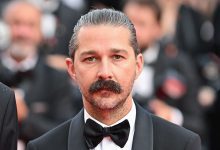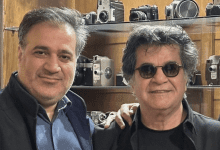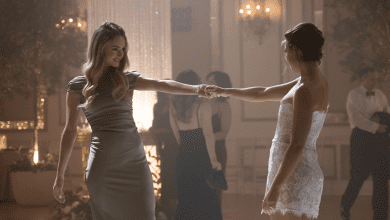‘Cruel Intentions’ Remake Bosses on Movie’s Influences, Casting Their Love Triangle and Putting the Mean Back Into YA Dramas
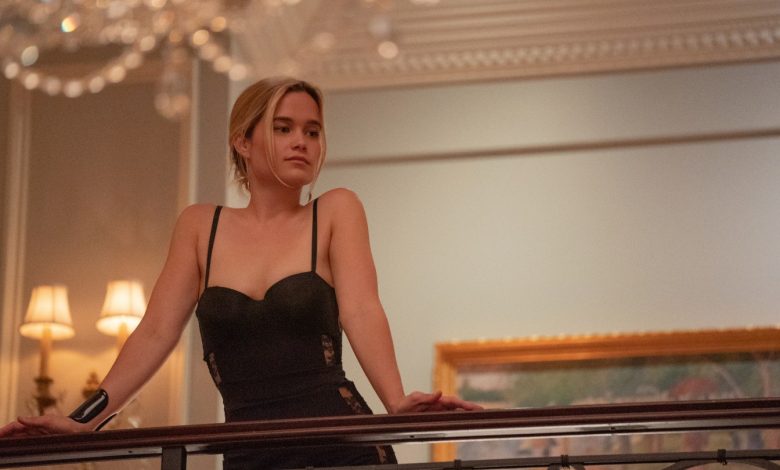
In its 240 years, Pierre Choderlos de Laclos’ once scandalous (and at one point, banned) 1782 novel Les Liaisons Dangereuses’ has been adapted around 30 times for various stage, radio, and screen productions across five continents. Yet for many, Roger Kumble’s Cruel Intentions has remained one of its most popular retellings.
The 1999 movie spin on a pair of lovers-turned-rivals who destroy each other through their cruel manipulations of the unsuspecting French aristocracy reimagines the unscrupulous members of the French nobility into two competitive (and sexually enamored) teenage step-siblings, Kathryn (Sarah Michelle Gellar) and Sebastian (Ryan Phillippe). As part of a jealousy-driven bet that begins with ruining their new classmate Cecile (Selma Blair), the duo finds the stakes of their contest flamed by the arrival of the disarmingly kind and principled Annette (Reese Witherspoon), the daughter of their affluent Upper East Side high school’s headmaster.
The box-office hit not only bolstered the careers of stars Sarah Michelle Gellar, Ryan Phillippe, and Reese Witherspoon but reinforced that the seductive and vicious nature of reputation, power, and social politics could pragmatically play out in the teen drama space. With its release, the film would join the likes of Romeo + Juliet, 10 Things I Hate About You, and Clueless in an era of clever and definitive modern adaptations, helping to usher in a provocative chapter of late-‘90s to mid-2000s young adult-led dramas, including Bring It On, Mean Girls and Gossip Girl.
Now, decades later, comes Cruel Intentions the TV series, which starts streaming on Thursday. When signing on for the series, Sara Goodman and Phoebe Fisher, the co-showrunners and writers behind Prime Video’s new adaptation, were not oblivious to this legacy, nor to the expectations that come with sharing the film’s title. Still, a story that’s equal parts an exploration of libertinism and also a scorching take on the elite remained a tempting narrative to explore.
Approached by Sony Pictures Television and Amazon MGM Studios (formerly Amazon Studios) back in 2020, they pitched and then wrote the first two episodes, along with the show’s bible, in 2021 before starting the writers room in 2022 and finally filming the series in 2023 around the SAG-AFTRA strike. (No major rewrites were necessary during the pauses, but Goodman and Fisher said reshoots did take place across five weeks, in a wintery Toronto they had to cast as a Washington, D.C., summer.)
In Goodman and Fisher’s modern spin, the venomous leading duo are step-siblings Caroline (Sarah Catherine Hook) and Lucien (Zac Burgess), who, after a hazing incident goes public, find themselves battling to preserve their sorority and fraternity, as well as their own power, through a dangerous game with each other and the students of their modern court: an esteemed D.C. college. Among those newly enrolled is the unsuspecting Annie (Savannah Lee Smith), the daughter of the Vice President of the United States, who has recently enrolled at their campus and a city that represents their modern “court.” Lucien works to ensnare Annie for his step-sister, who is desperate to use her name to save Greek life’s place at the top of the social hierarchy, but then Lucien begins to exhibit real romantic feelings.
As part of the first half of a wide-ranging conversation with The Hollywood Reporter, Goodman and Fisher open up below about the inspirations and intentions of their new series and the latest take on Les Liaisons Dangereuses, which arrives 25 years after Kumble’s film.
***
There have been other attempts at a Cruel Intentions TV series, but yours is the first to get off the ground. What inspired you to try your hand at it?
SARA GOODMAN When Amazon and Sony first came to me, I had hesitation about doing the kind of a title that I was a fan of and that I knew had such a huge fanbase. That’s part of why I brought [in] Phoebe [Fisher]. I’m Gen X, she’s a different generation. We’re both giant fans of the movie, we’re both giant fans of television. But I felt like we could maybe come together to bring a new version of this — just like Cruel Intentions was a new version of Dangerous Liaisons, which was a new version of the book from the 1700s. People are always going to behave in terrible, terrible ways, and it’s going to be entertaining. So I think the only reason we did it was because we felt like we had a way in, and had characters we wanted to play with and live with.
PHOEBE FISHER I’ll echo everything you said. Also, it made a lot of sense once we started putting everything together in terms of the setting being fraternities and sororities feeling like a new world to explore, and a new rarefied, traditional microcosm of what that story is. All the power plays fit really organically into this backdrop of fraternities and sororities. It just made a lot of sense when we started talking about it.
There’s a very big universe of Les Liaisons Dangereuses adaptations, but the Cruel Intentions universe is also big, with a musical, prequels, sequels, and other spinoff attempts for TV. Did you reference any of that other material?
GOODMAN Dangerous Liaisons, absolutely. We did not watch the other [2016] pilot. Actually, Phoebe did, I did not.
FISHER I saw one little clip, and then I was like, I should wait and it’ll be like a treat that I can watch after.
GOODMAN I avoided things that I felt like were going to take us off track, but I went back to [1988 film] Dangerous Liaisons because I feel like the royal courtness of our fraternity-sorority world, we really liked it and that John Malkovich character is so amazing. (Laughs)
FISHER Everybody in Dangerous Liaisons is.
GOODMAN Yeah, look at that cast!
FISHER It’s such great source material to draw from and you have Uma [Thurman], Keanu [Reeves].
GOODMAN Michelle Pfeiffer.
FISHER Glenn Close! So yeah, that spiritually influenced us as much as Cruel Intentions 1999.
Cruel Intentions (1999) is mean, but within that, it has some really elevated conversations through its teen leads about power, class, race, gender, sexuality, morality, consent, and abuse of technology. What themes were most compelling to explore in your modern take?
GOODMAN Reputation is a big part of all of those things, which I think translates really nicely into our present day in terms of perception of power: who’s meaningful and who is not meaningful; what makes a person meaningful and not meaningful within any subculture.
FISHER The commodification of privilege and the way into ascending to and keeping power. The classist social hierarchy of fraternities and sororities was something that we talked a lot about.
GOODMAN: Classism for sure. Classism, privilege, and exclusivity. I worked on the OG Gossip Girl, and so those things are all very present. And I think to tell those stories in an entertaining way that makes you love and hate the characters within that, for me, is what’s been kind of missing on TV right now. Either we’re being forced at a message about it, or everyone’s avoiding it. So I feel like this is where we live, and we might as well have some fun at their expense.
FISHER Let’s love to hate.
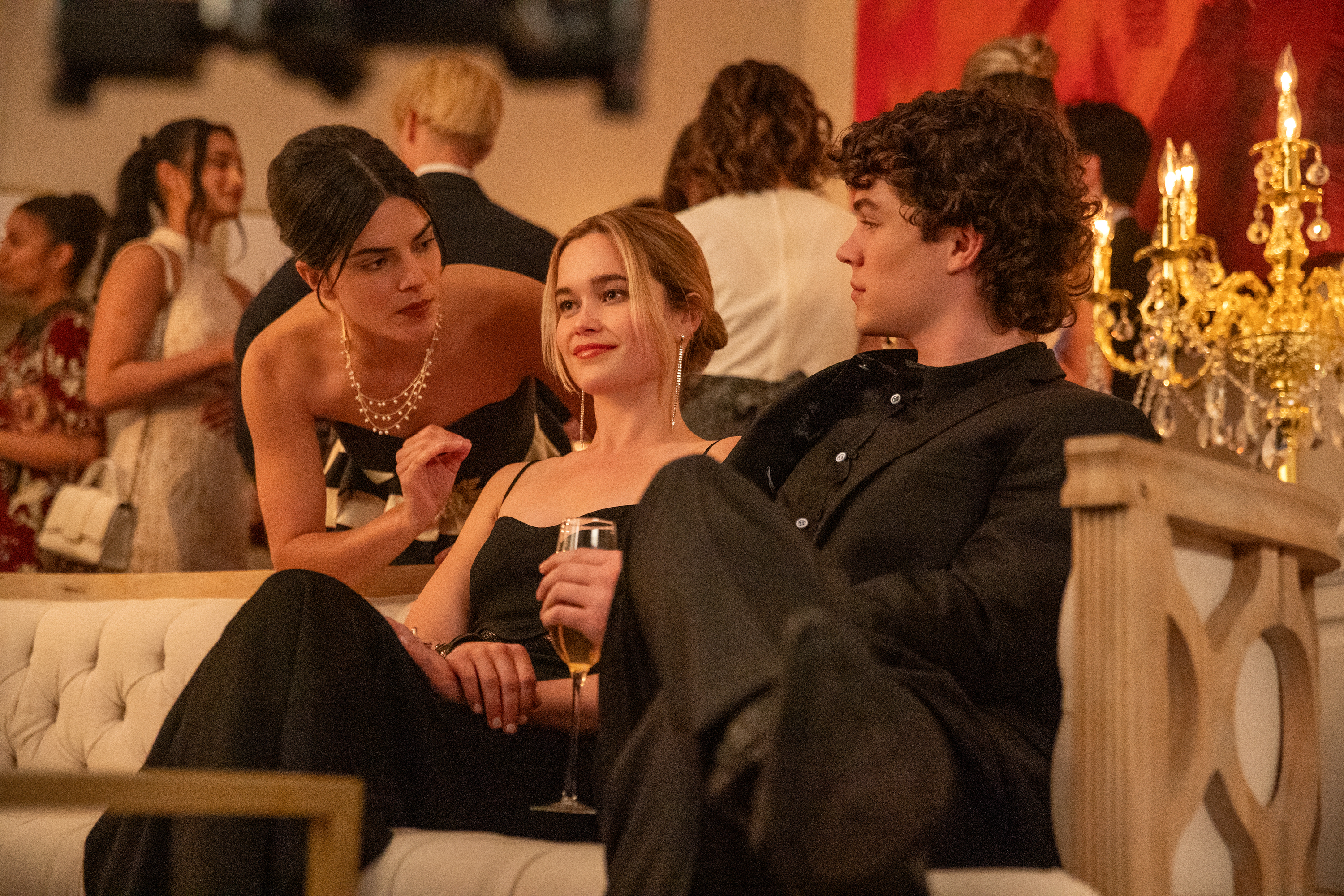
This show has real teeth. That’s something that’s missing from some young adult series nowadays, due in part to its audience on the younger end of the spectrum. Knowing what your source material was, and that you might be capturing YA’s older and younger audience, how did you think about where and how to inject the cruelty into your take?
FISHER In the conception and the construction of the two sides represented in our show — the fraternity and sorority side versus the anti-fraternity and sorority side — there was a fun way that we felt like we could poke fun and expose both sides equally. So nobody’s right and nobody’s good, except —
GOODMAN Sean [Patrick Thomas’ character]. (Laughs)
FISHER I think we’re equal opportunity awful? (Laughs)
GOODMAN If you’re making Cruel Intentions, you can’t take the teeth out. You can’t. Do we walk the line? We definitely have consent. We don’t have anything without consent in this show. That is a line that we were very clear about. We’re not crossing that line, and that’s not interesting to us. That’s not what this is about. But for people to use inappropriate language and to be mean to each other is part of what the show is about. Those people still have a heart and still want to be loved — whether it’s wanting power, wanting their mom to love them, or whatever those things are that we all struggle with internally — that is the balance of being able to do a TV show and not just a movie.
Part of why that meanness — as well as other mature elements of the show — may work is because of a change you made between the film and show: You took them out of high school and put them in college. How did that make storytelling room for you as writers?
GOODMAN First and foremost, I feel it’s been so limited, what’s been done in college. College is an amazing time. You’re free from your parents for the first time in your life. You think you’re an adult for real. You totally think you’re an adult, and leaning right at the other edge of that is actual adulthood, where you’re expected to function in a society without rules, without classes, make your way, and define yourself as a person. So there is this external pressure that’s not just about where you will go to college. It’s about who you are going to be in your life.
For most of us, it’s how are you going to support yourself? Not necessarily all of our characters, but some of them. That confluence of freedom and at the end of it, way too much freedom and adulthood make people behave even worse and create a microcosm, again, in which all of this behavior is somehow ritualized and recognized as appropriate. And we still have sympathy for them. We still feel for them. They’re still young enough. Why do you love YA? Because we give them the benefit of the doubt.
FISHER Those frontal lobes are not done yet. (Laughs)
Roger Kumble, the original writer-director, served as an executive producer on this. How involved was he?
GOODMAN He was on before we were on. He was attached, I think, from the beginning to anything that they were going to do with it. I think he had done the original NBC pilot that didn’t go, so he was on. But he was not involved. He saw it as soon as we finished it and was a big fan of it, and we got his blessing before we locked anything.
You still have a lot of winks and nods to his film, I think most obviously from the character perspective. How much did you want people to feel like these were new characters and how much did you want to entice audiences to previous iterations?
FISHER That’s exactly what we wanted to do — give a nod and acknowledge that these characters are beloved and exist. We’re also doing an ongoing series that’s longer than just the movies, so we needed to have our own characters that we could explore within that longer time frame.
GOODMAN Yes, on the wink and the nod to characters that are super beloved, but they don’t have the same names, they are a new generation and are not playing the same characters. Sarah Catherine Hook is not playing Sarah Michelle Gellar’s Kathryn. She’s playing a different character that’s of this time that has her own agenda. Some of those agendas — the bet — overlap. Some of those boundary-pushing things overlap because we love them. But she is a different character, just like Sarah Michelle Gellar wasn’t Glenn Close. I think it’s very similar to that. We all love the material and we don’t want to take anything away and not give or pay homage to this thing that came before us.
Sean Patrick Thomas plays Professor Chadwick in your series. He also starred in the 1999 film, which in an interesting parallel, cast Dangerous Liaisons star Swoosie Kurtz. But how did Sean’s casting happen?
GOODMAN I mean, when we heard he was interested —
FISHER We were so excited. We were fangirling pretty hard. We were like, “He wants to like… that’s a possibility?” It was so exciting. Lauren Grey, our casting director, was like, “Yeah, of course he would be a perfect Chadwick.” We were like, that’s our Chadwick.
GOODMAN We wanted to make sure whoever played that character had agency. Because he is really the beating heart. He and Scott (Khobe Clarke) are kind of the purest souls of the show, I would say, and while [Chadwick] ends up in a tricky situation, he behaves in that situation in the most admirable moral, centered, grounded way any person ever could.
FISHER He’s the adult of the show. (Laughs)
When I spoke to Sean Patrick Thomas about his character, he noted that some of what we understand happens to him comes through a racialized lens because he as an actor is Black and thus his character is Black. But that the character may not inherently be written with the things we’re reading into him and his experiences. So I’m curious, did you colorblind cast for this entire series?
GOODMAN We felt, to be quite honest, that Lucien and Caroline needed to be white. It’s not that people of color can’t exploit other people. I think we can all exploit other people. But we felt that their privilege ran so deep that no person of color could possibly have that much entitlement. It felt generational to us. We also wanted to make sure that Lucien and Caroline looked enough like siblings, even though they’re not related. We also wanted Beatrice [Brooke Lena Johnson] to be white to have that “white knight.” But otherwise, we were colorblind.
You have a lot more characters that take center stage in this because you have eight hours instead of 90 minutes. But the trio at the center of it remains the most essential in terms of casting. Can you first talk about what you were looking for in Caroline and Annie?
FISHER It’s a tall order for these three characters, and for this show specifically, there’s a ton of language. There’s a very specific tone that’s very comedic, very dramatic. They had to have meanness and also humanity, and have all the chemistry between them. We didn’t go into it having a preconceived notion of who we were looking for. But then when we saw them, we were like, “That’s it.” It became very clear that they were our cast.
GOODMAN I think with Caroline we didn’t want to cast somebody who automatically you looked at and thought was a villain. Sarah Catherine Hook has a softness to her. She has a femininity that you don’t realize how fierce she is. In the other things that she’s done, she has not gone here.
FISHER She was surprised, I think, that we didn’t want her for Annie. She was like, “Oh, I must be coming in for the Reese Witherspoon part.” But, no, she’s Caroline. She’s our hot bitch in charge.
GOODMAN With Savannah, interestingly, she was such a snarky fast talker in the Gossip Girl reboot. I think we wanted to make sure that the character also had her own modern personality. She’s snarky, she’s sarcastic, and she gets that people want things from her. She’s not just a naive virgin that doesn’t exist in our world. We wanted to make sure that they all could do all of the comedy, the sexuality, the drama, all of the interplay. But we also wanted to make sure they felt like real people, and that that came through.
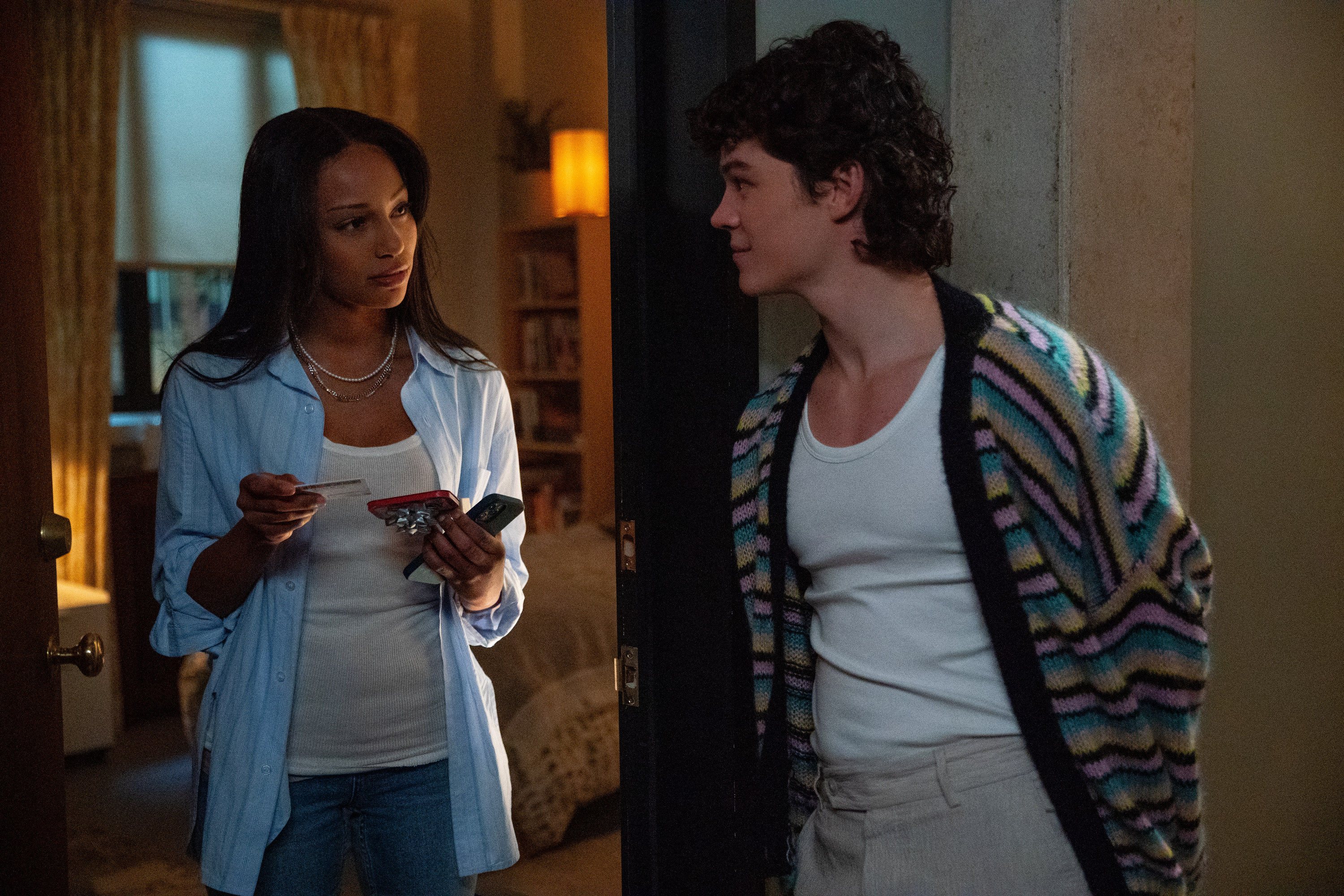
Lucien probably has the highest expectations coming into this in terms of people who know the 1999 film. But that character is, in some ways, very of its time. Can you talk about what you were looking for in your take?
FISHER When we were talking about the love triangle aspect of this title, we were talking about Lucien as being the soul in question that they’re battling over; Annie being the side of good, Caroline being the side of evil, and Lucien being the mutable soul in between who can either go towards his better angels or his demons. I think that in Zac we see somebody who has that depth and that damage bubbling underneath the surface, but also a sweetness to him and the humanity that feels like he could go either way at any point.
GOODMAN Oftentimes we talked about Lucien as if you’re raised by wolves, you become one — the only way to live with wolves is to become a wolf. And [during auditions] these guys came in and just led with this very aggressive sensuality a lot of the time, and we felt like with modern-day Lucien, that just didn’t work. Why would people want to sleep with that guy? Why would he get the girls? There has to be something about him — that you see the cracks. Because that’s what women want. “Oh, I see this crack. I can fix it.” (Laughs)
That was very important to us. Also, the level of self-destruction that he has. Zac feels young, like there’s something innocent about him, that doesn’t feel so calculated. It feels like he’s making it up in the moment. I think that was important for us, for Lucien. Zac has an openness — an ability to open and close in half a second — where you thought you saw something and then wait, is that what I saw, or was that manipulation? To not make it Machiavellian, but still give him those layers, Zac really was amazing.
***
Cruel Intentions releases all episodes Nov. 21 on Prime Video.
Source: Hollywoodreporter
Related Posts
- Roundball Rocked: With NBA Return Looming, NBC Purges Scripted Roster
- SoundCloud Says It “Has Never Used Artist Content to Train AI Models” After Backlash on Terms of Service Change
- Fox News’ Camryn Kinsey Is “Doing Well” After Fainting on Live TV
- Kerry Washington and Jahleel Kamera in 'Shadow Force.'
Courtesy of Lionsgate
…
- This Alternative Artist Landed a Top-20 Chart Debut With an Album Made Almost Entirely on His Phone

